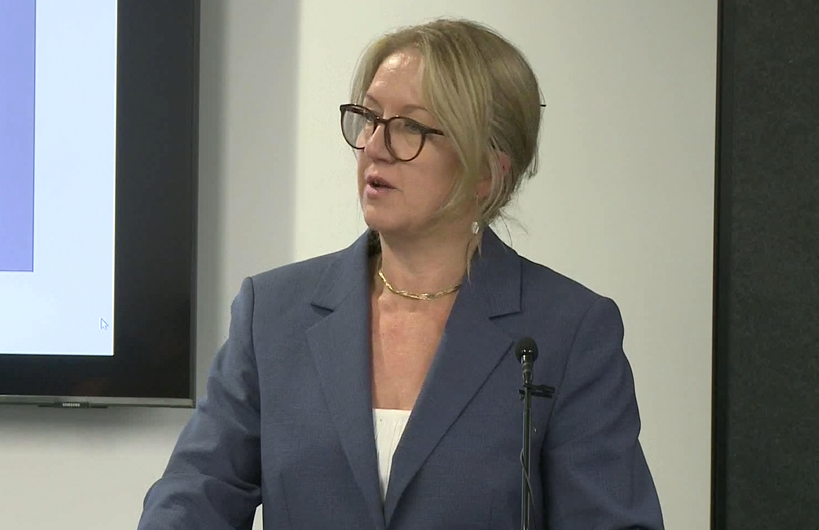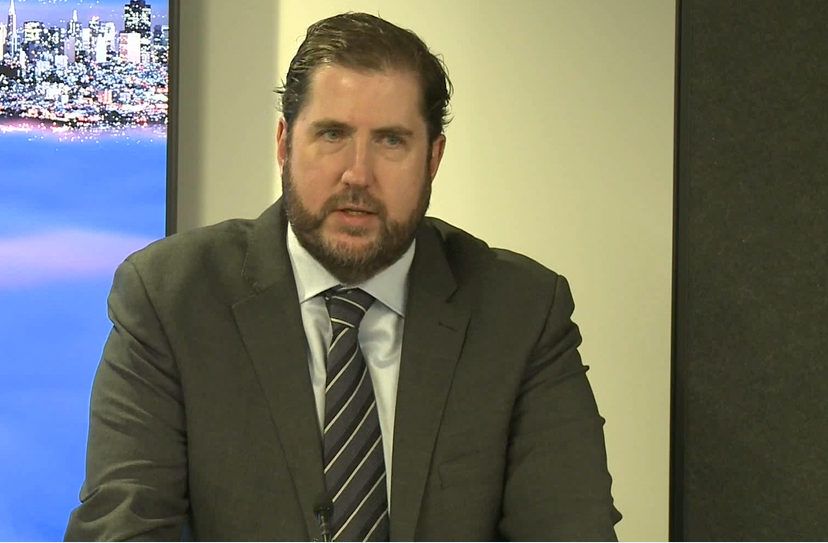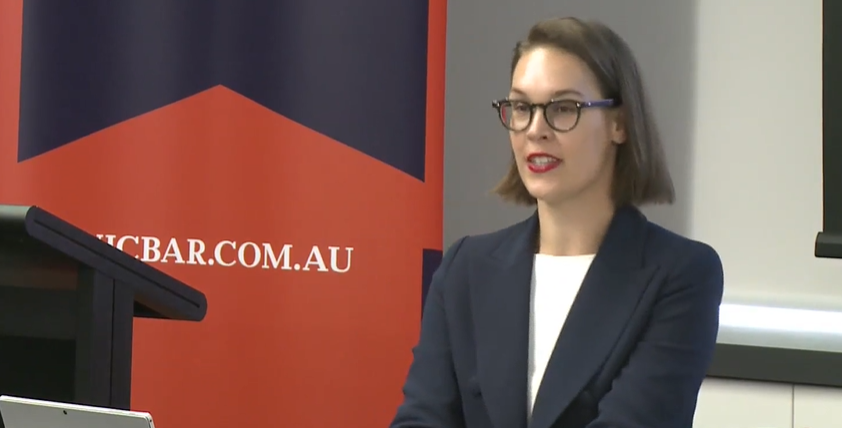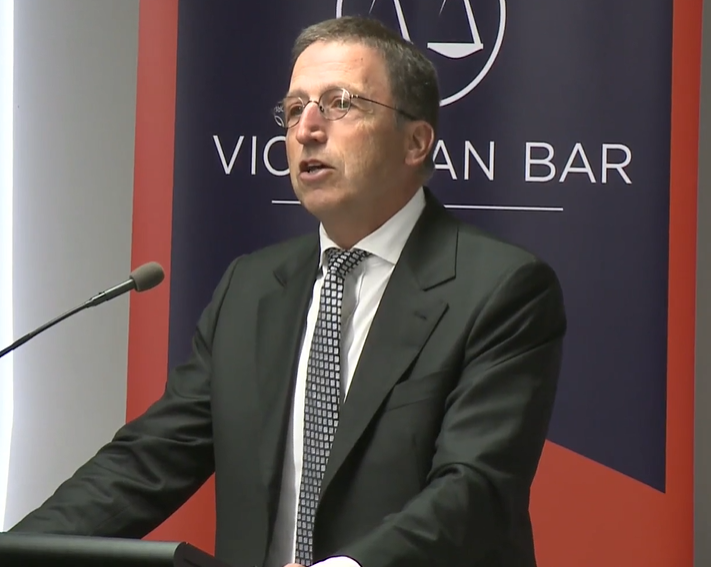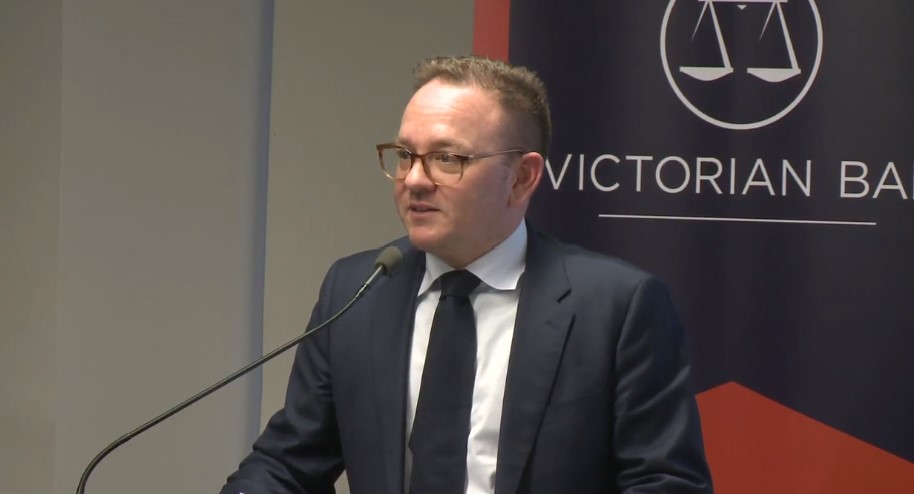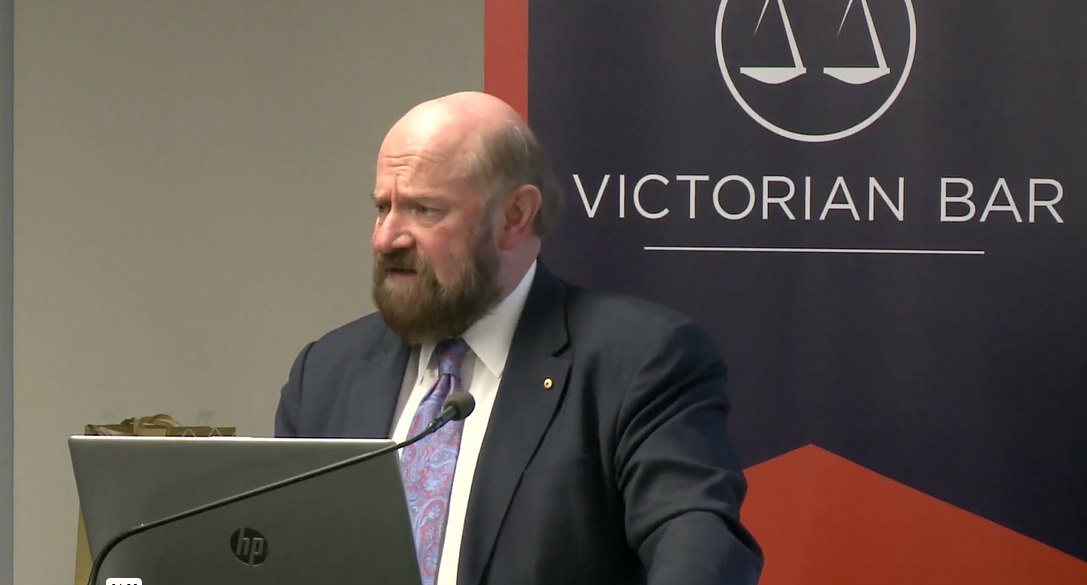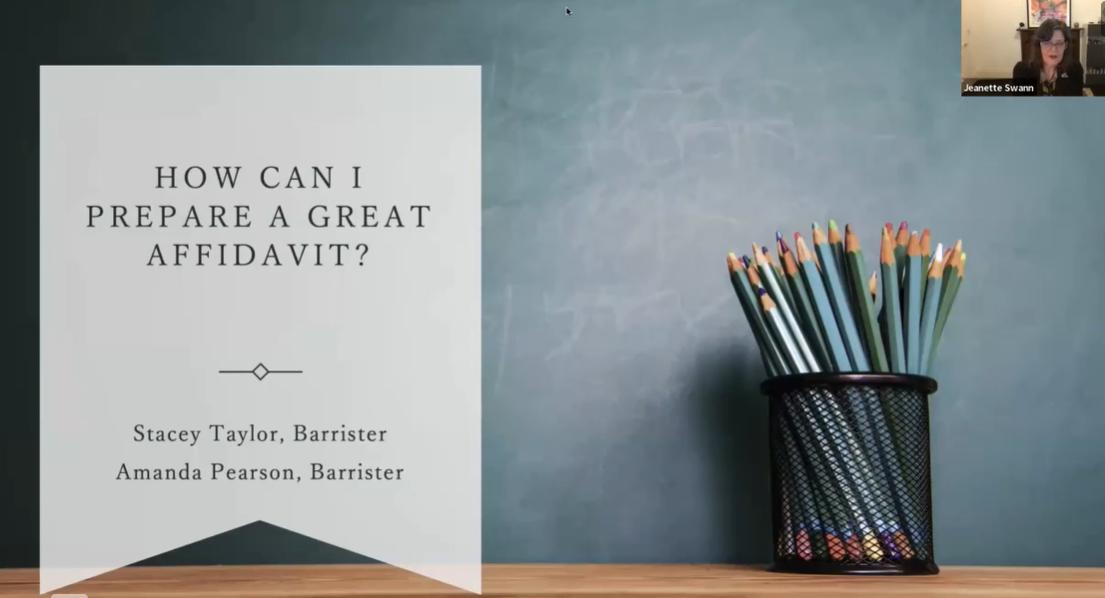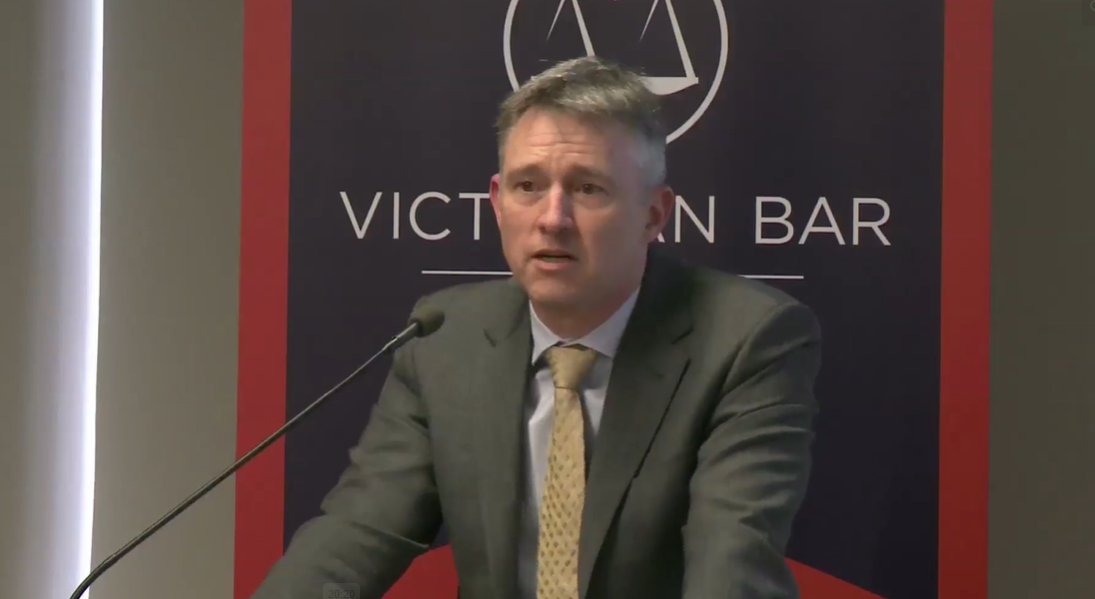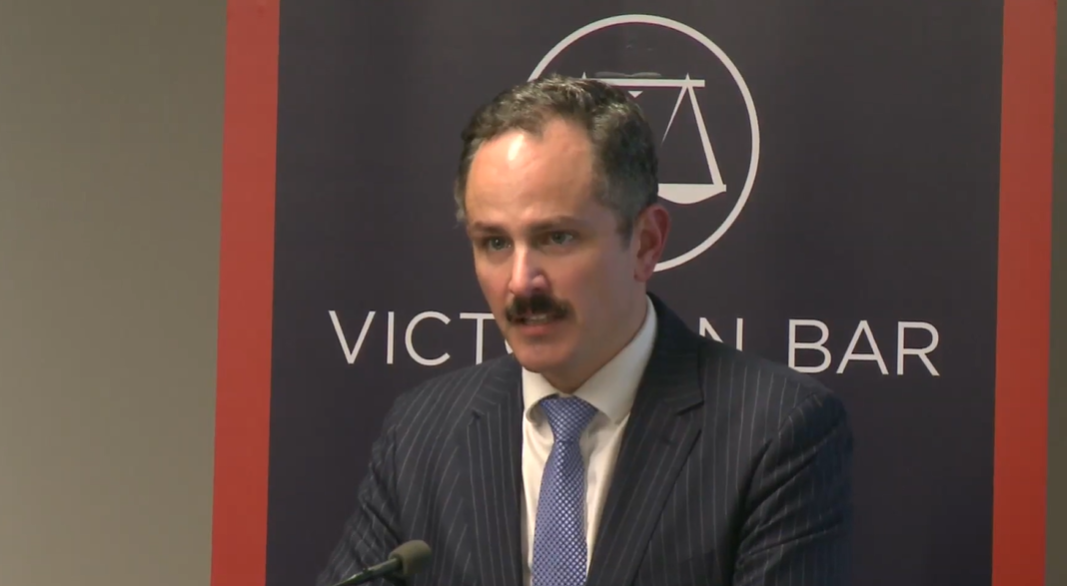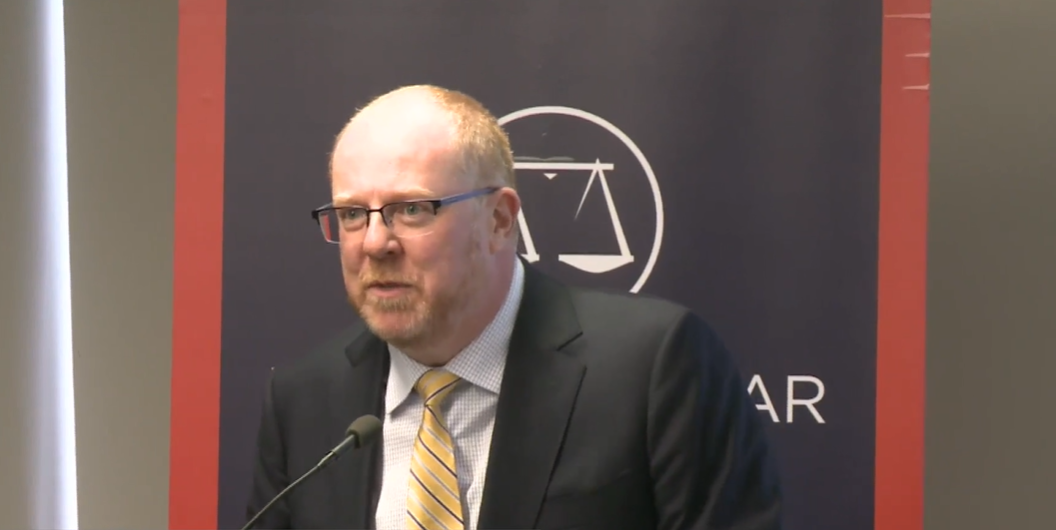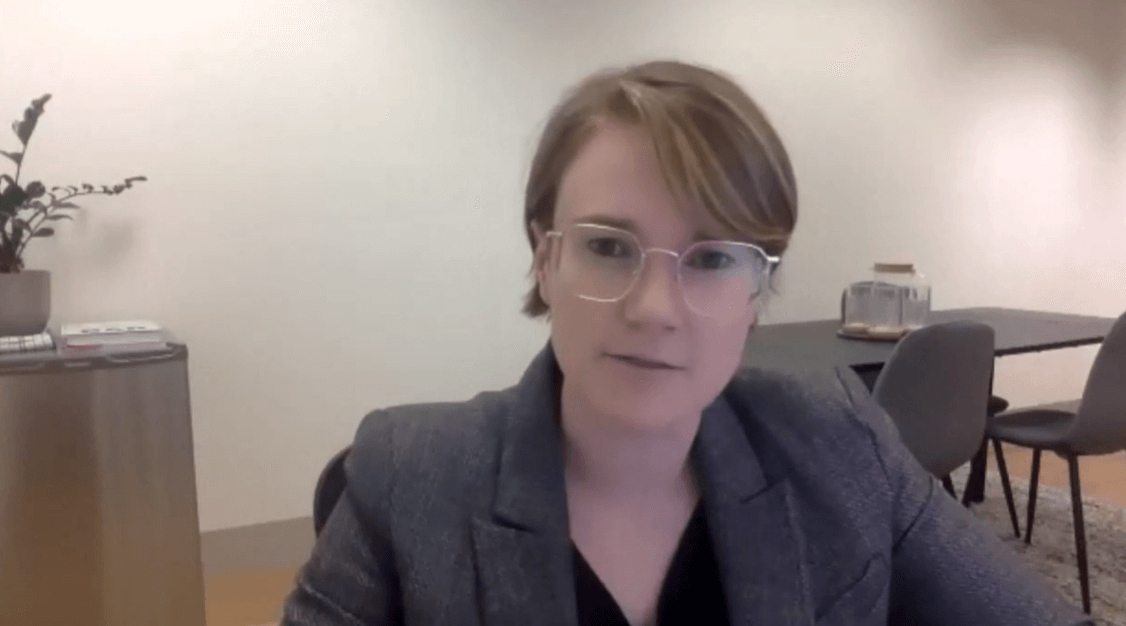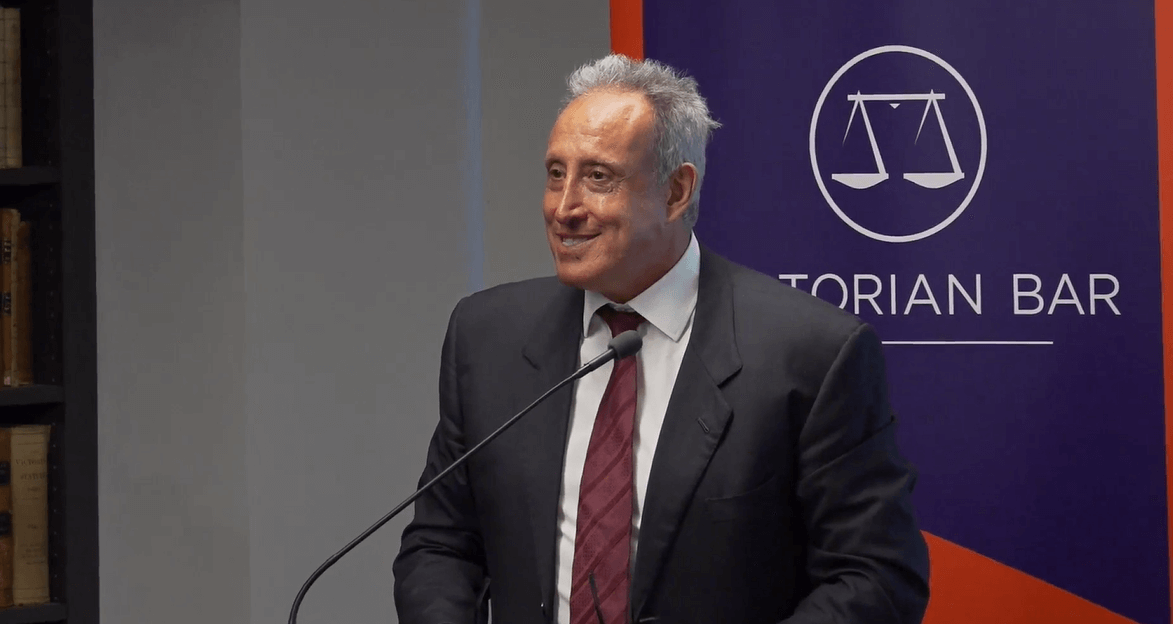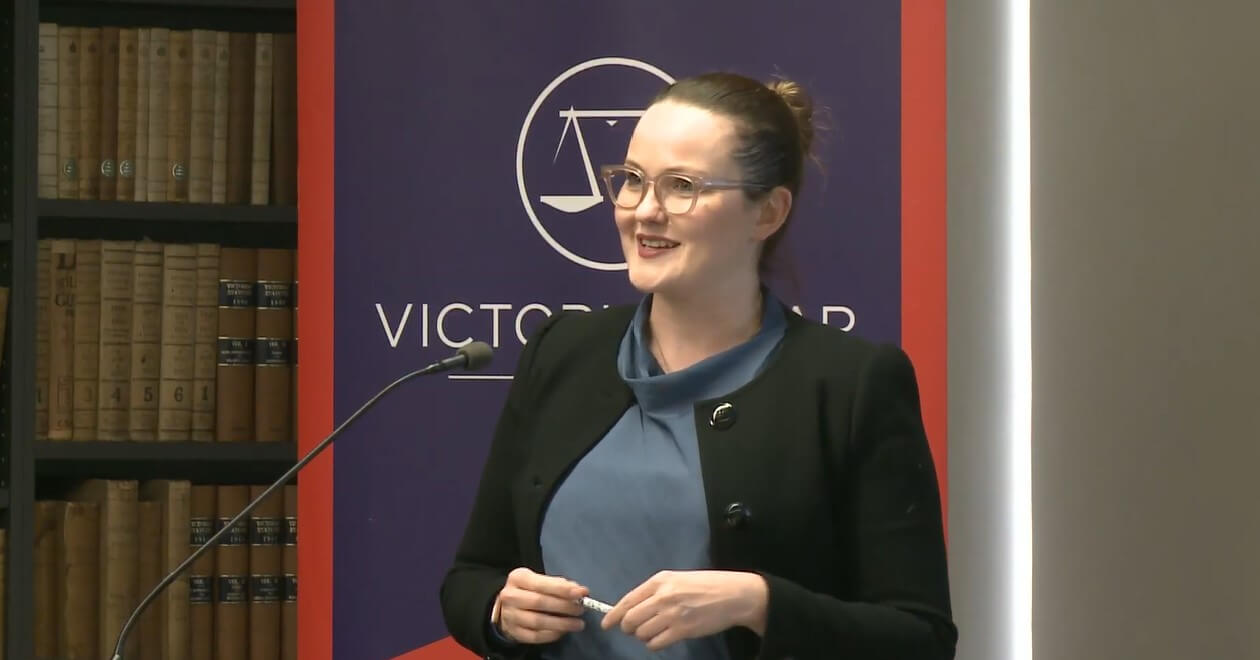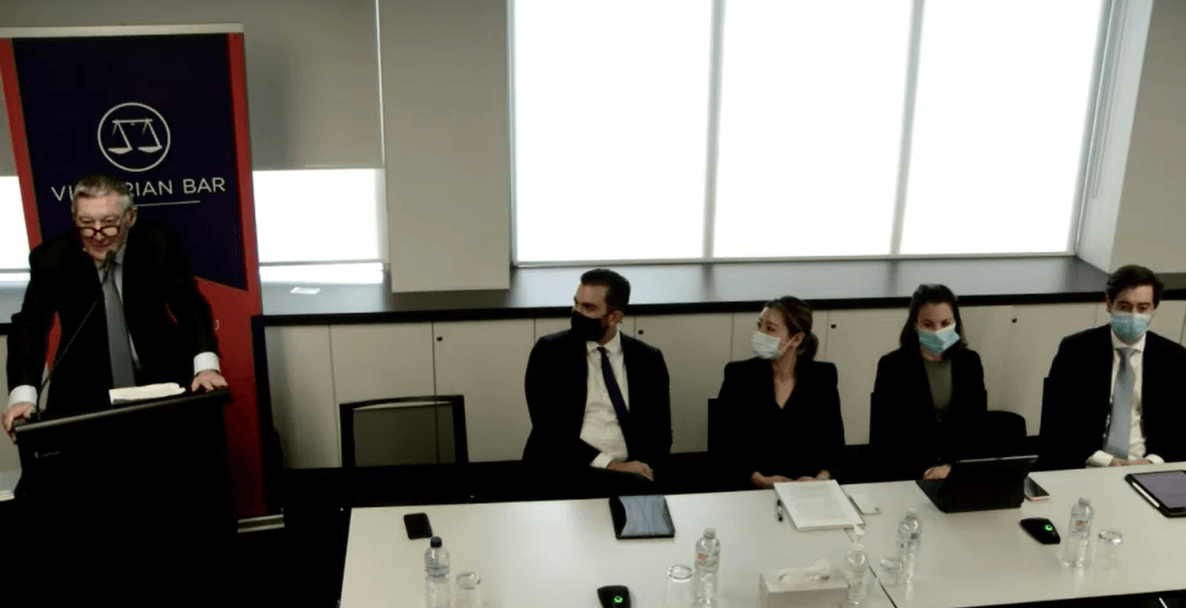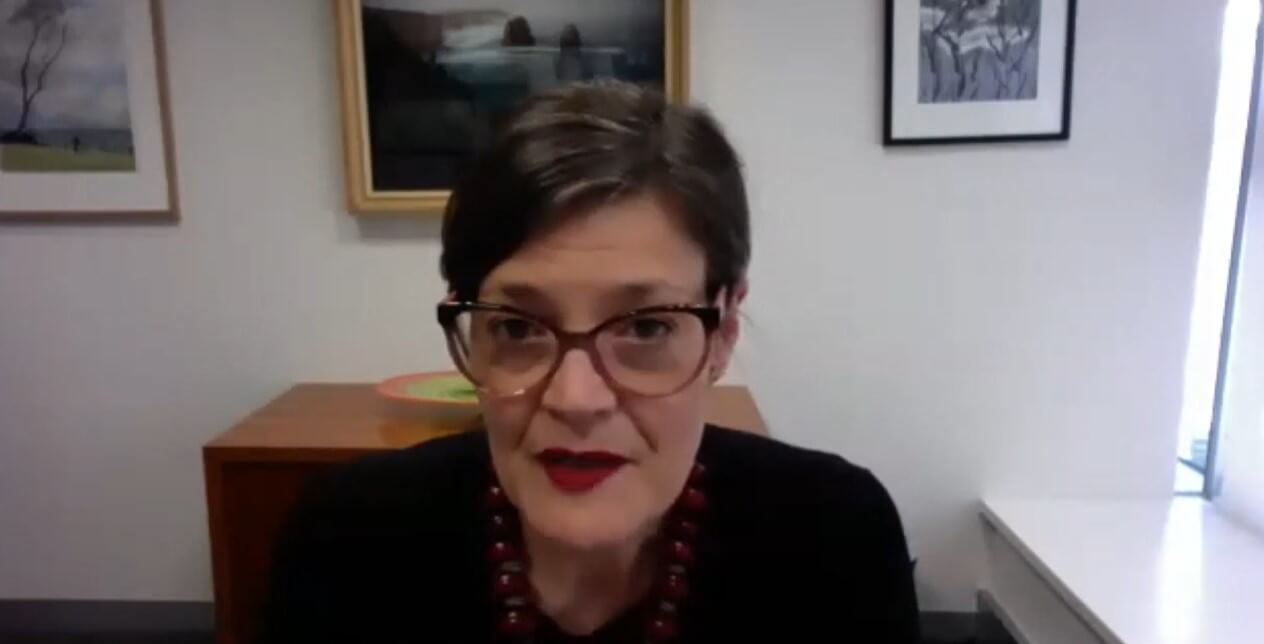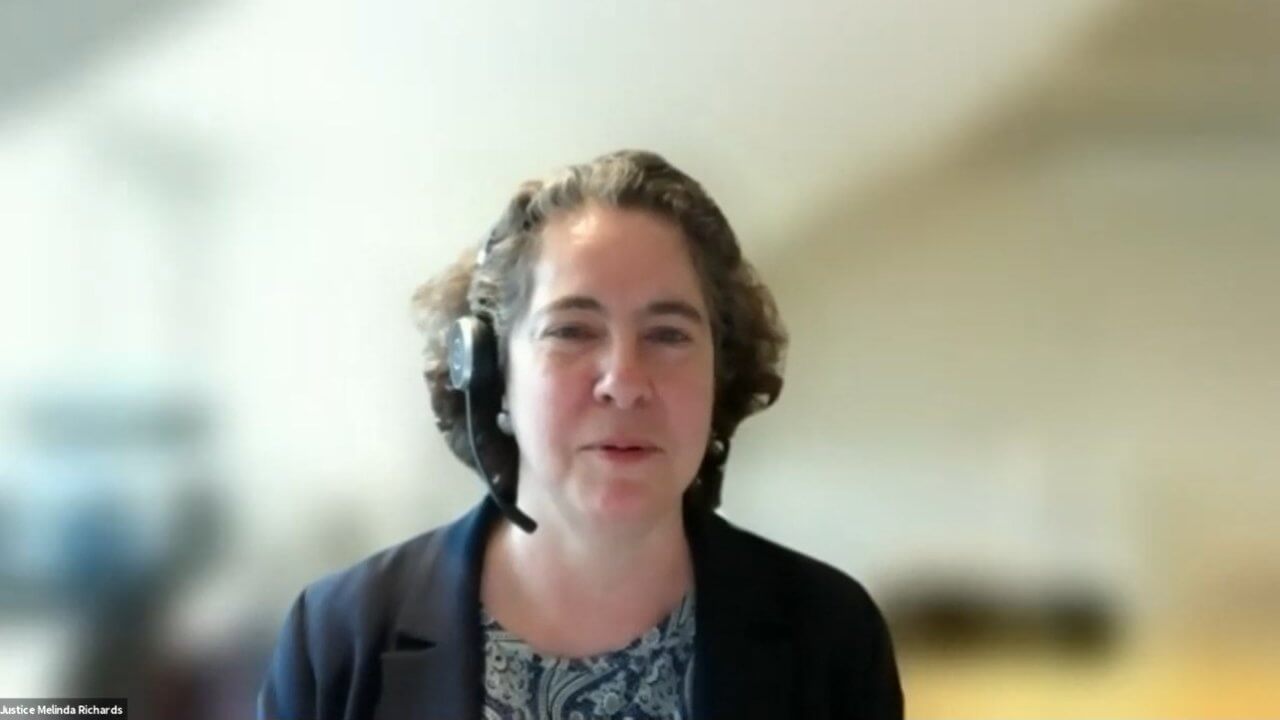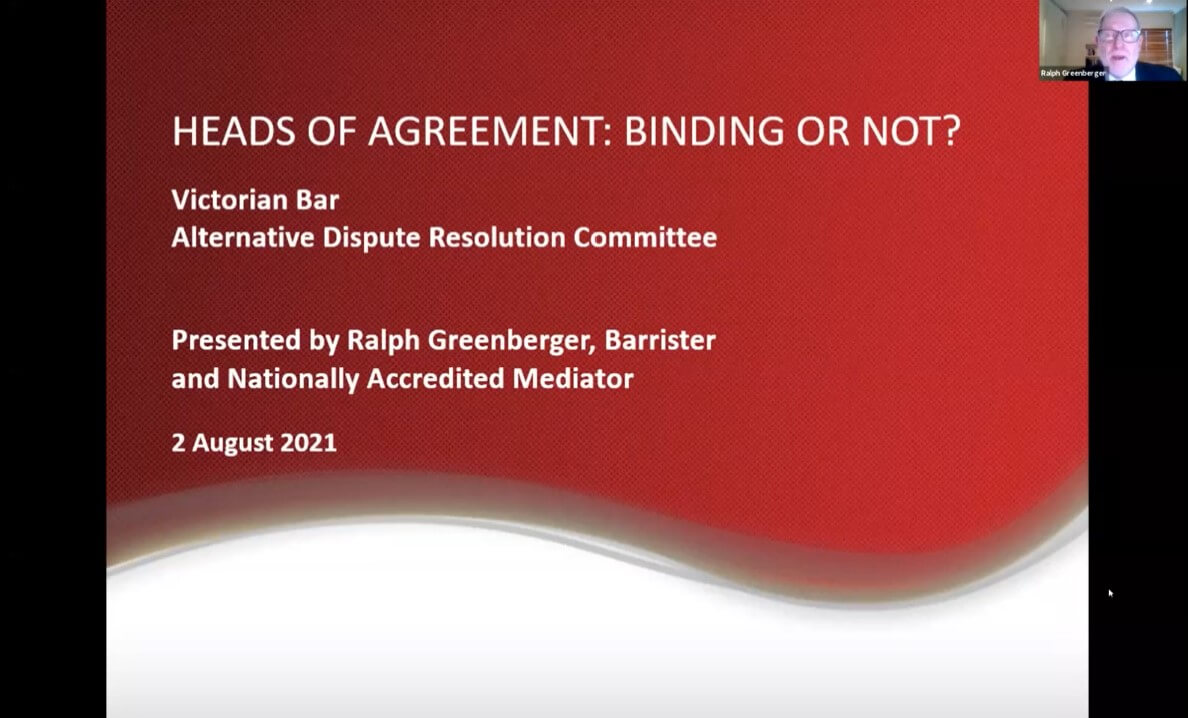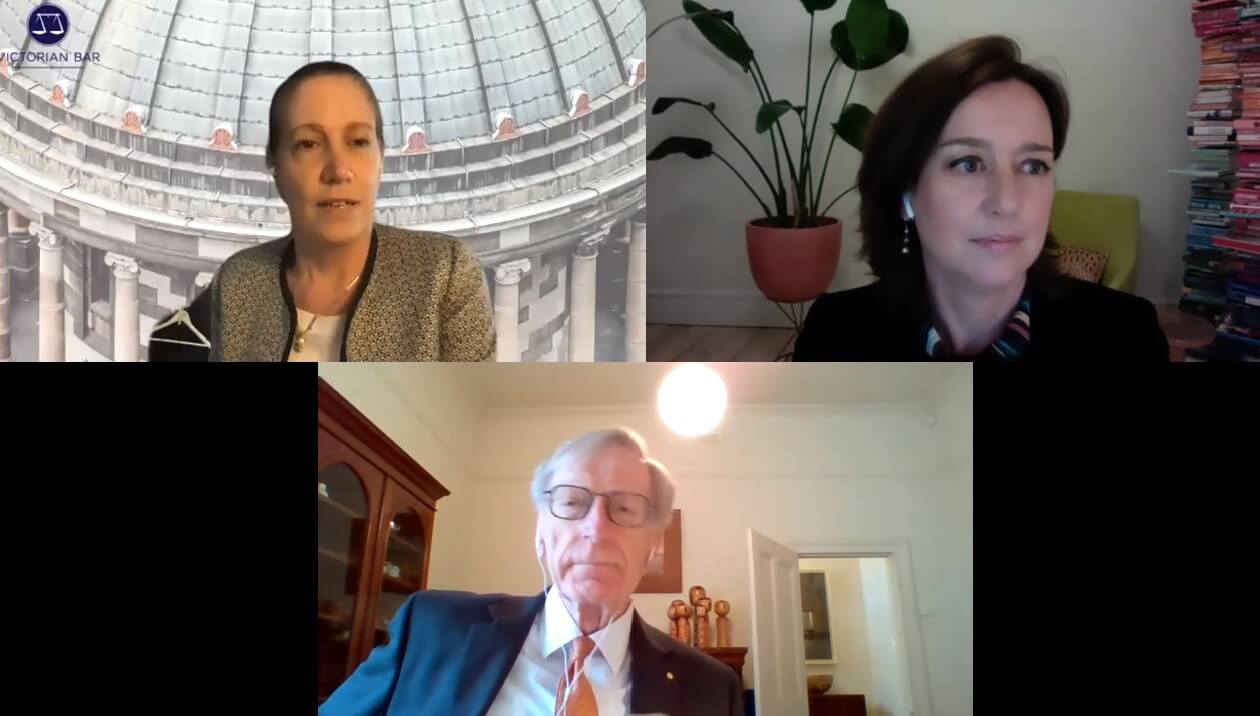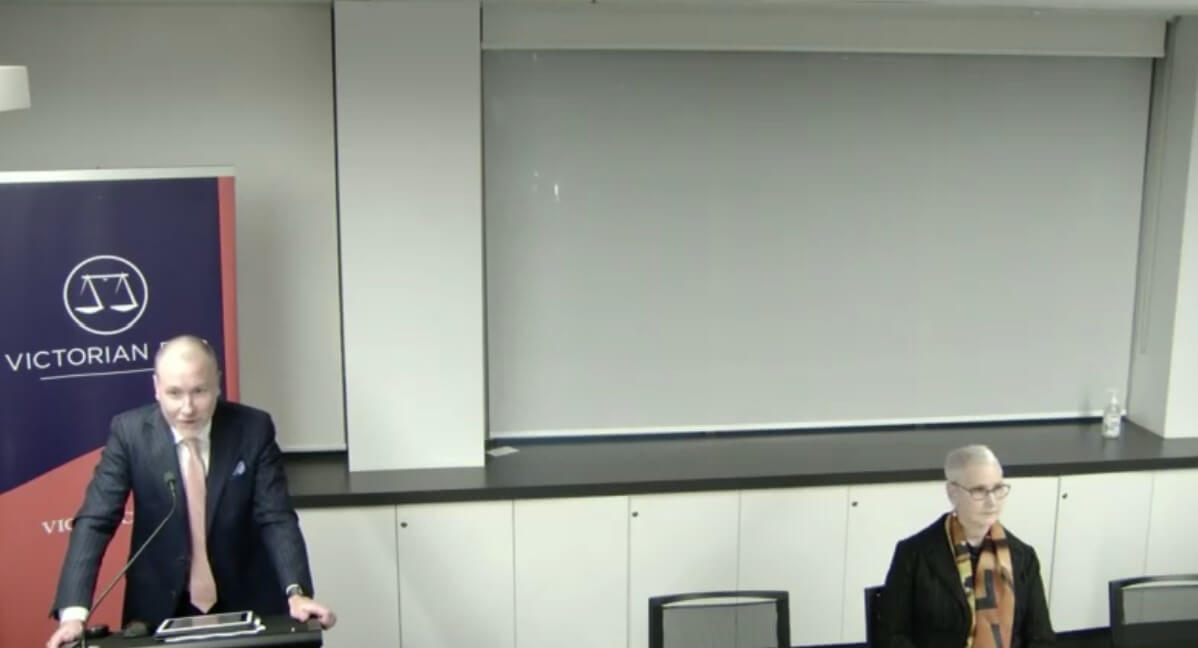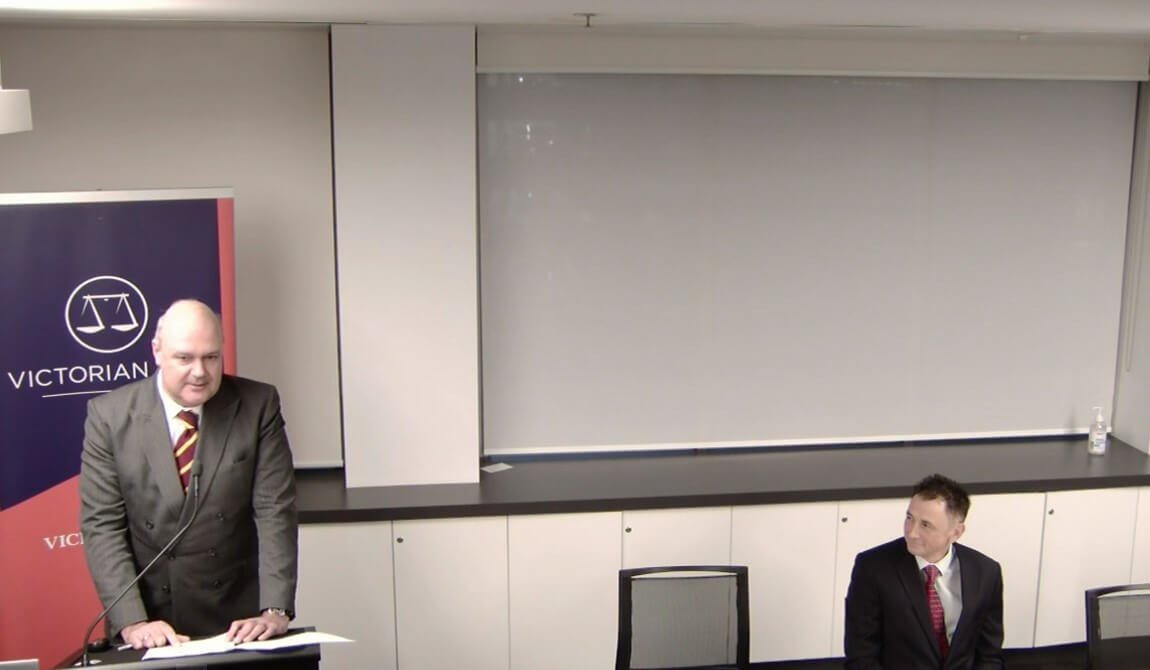
Archive
Showing 1–35 of 165 results
“Treaty, yeah? Treaty, how?” – Victoria’s Legal Framework for a Treaty with First Nations Peoples
$77.00“Treaty, yeah? Treaty, how?” – Victoria’s Legal Framework for a Treaty with First Nations Peoples
28 May 2024
In August 2018, the Victorian Parliament passed the Advancing the Treaty Process with Aboriginal Victorians Act 2018 (Vic), the purpose of which was to advance the process of Treaty-making between traditional owners and Aboriginal Victorians and the State of Victoria, and to provide statutory recognition of an Aboriginal Representative Body as the sole representative of traditional owners and Aboriginal Victorians for the purpose of establishing elements necessary to support future treaty negotiations.
In 2022, the Victorian Parliament passed the Treaty Authority and Other Treaty Elements Act 2022 (Vic), the purpose of which was to legally recognise and authorise the establishment of a Treaty Authority under a Treaty Authority Agreement. The Treaty Authority is integral to the development of the Treaty Negotiation Framework, which aims to build a new relationship between the State and First Peoples based upon realising the self-determination rights in the United Nation Declaration of the Rights of Indigenous Peoples (UNDRIP).
As part of the Bar’s commitment to Reconciliation Week, the Indigenous Justice Committee is proud to invite members of the Bar to attend an insightful and dynamic discussion about the historic and significant legal framework for Treaty-making. This session will explore the guiding statutory principles for the Treaty process and the functions of the First Peoples’ Assembly of Victoria and the Treaty Authority. The discussion will feature:
Rueben Berg, a proud Gunditjmara man and Co-Chair of the First Peoples’ Assembly, who has been integrally involved in the design and negotiation of the Treaty Negotiation Framework, and in taking a leading role in negotiations with the State;
Jidah Clark, a proud Djab Wurrung Man (with Kirrae Wurrung, Boon Wurrung, Taungurung, Wemba Wemba and Palawa ancestry), the Chair of the Treaty Authority and an experienced lawyer who has worked across the public, private and community sectors.
Appearing as counsel at a coercive examination conducted by an integrity/investigatory body: your rights and obligations
$77.00Appearing as counsel at a coercive examination conducted by an integrity/investigatory body: your rights and obligations
9 May 2024
The Victorian Inspectorate (VI) oversights key integrity and investigatory bodies in Victoria that have the power to issue witness summonses requiring persons to attend and answer questions at a coercive examination, including IBAC, the Victorian Ombudsman and the Office of Chief Examiner. The VI itself can also issue witness summonses for examinations it conducts. Witnesses required to attend an examination have the right to legal representation.
This seminar will examine the rights and obligations of counsel representing a witness at a coercive examination (and also those of the witness) and provide helpful hints as to matters counsel should consider when preparing for the examination.
Amendments to the Bail Act 1977
$77.00Amendments to the Bail Act 1977
21 March 2024
This is an insightful and highly practical seminar designed to assist practitioners get to grips with the upcoming amendments to the Bail Act 1977, which commence on 25 March 2024. The seminar will focus on the reforms contained in the Bail Amendment Act 2023 and their practical implications; addressing the impact the changes could have on your clients’ applications. Don’t miss this opportunity to keep on top of these key reforms which will affect all practitioners who work in this area.
Sentence Indications
$77.00Sentence Indications
21 March 2024
This session discusses sentence indications – how to prepare, present and run an application. What you need to explain to your client before applying for an indication and anticipating the risks of a prosecution appeal against sentence imposed after a sentence indication.
‘Set off’ in industrial and employment law: where are we now, and where are we headed?
$77.00‘Set off’ in industrial and employment law: where are we now, and where are we headed?
5 December 2023
At a time when questions of characterising work relationships are evolving at pace, an understanding of the scope and operation of ‘set off’ in industrial law has perhaps never been so important. Despite several Federal Court judgments over the past several years grappling with industrial law ‘set off’ – including Workpac Pty Ltd v Rossato, Wardman v Macquarie Bank Ltd, and Fair Work Ombudsman v Transpetrol – a range of legal and practical questions remain. How ‘close’ is the required correlation? What happens where the underpayment arises from a failure by the parties to create the type of relationship they intended? Over what period can one set off? How does set-off fit with s 545 of the Fair Work Act?
This session aims both to explore those questions and identify the likely battle lines of future cases.
Building on shifting sands: The effects of VCAT’s eroding jurisdiction
$77.00Building on shifting sands: The effects of VCAT’s eroding jurisdiction
2 November 2023
Over the past several years, a number of decisions have significantly altered our understanding of VCAT’s jurisdiction and power. The effects of these decisions have been most keenly felt in building and construction matters, particularly those in which insurers are involved.
The panel includes Justice Ted Woodward, VCAT President and two experienced building and construction practitioners, Nicholas Pane KC and Natalie Burgess. They will discuss the practical effects of VCAT’s restricted jurisdiction for the Tribunal and practitioners, their implications, and the effect of recent legislative reform.
Audio and Visual Recordings in Family Law Matters
$77.00Audio and Visual Recordings in Family Law Matters
27 July 2023
Recording devices are now widely accessible and easily used. Increasingly parties are coming to the Family Law Courts armed with audio or visual recordings which they seek to rely upon.
This CPD considers the legality of audio or visual recordings and the use that can be made of these recordings in family law proceedings, with reference to Telecommunications (Interception & Access) Act 1979 (Cth), Evidence Act 2008 (Vic) and Surveillance Devices Act 1999 (Vic), as well as recent decisions. This seminar will also cover useful practicalities that practitioners should be aware of when faced with this complex area of law.
Developments in Expert Evidence: Implications for Criminal Lawyers
$77.00Developments in Expert Evidence: Implications for Criminal Lawyers
17 July 2023
This session explores recent developments in expert evidence, including lessons for criminal lawyers about becoming involved in briefing experts, and emerging topics such as gait analysis, footwear evidence, and the prejudice arising from particularly technical areas of scientific evidence.
The New Law of Sexual Harassment
$77.00The New Law of Sexual Harassment
9 May 2023
Australia is currently experiencing the most significant reforms to the law of sexual harassment in decades. This session will provide a detailed understanding of the definition of sexual harassment in the current landscape. The session will also examine the focus on positive duties and new procedural options in the recent reforms.
Finally, the session will look ahead to the proposed requirements on Victorian employers to report to WorkSafe Victoria and meet other obligations in relation to sexual harassment in the workplace under psychological health regulations.
How can I prepare a great Affidavit?
$77.00How can I prepare a great Affidavit?
30 March 2023
A deep dive into the key elements of affidavit drafting and tips on how to create a document that promotes and enhances your client’s case.
The CPD also includes an overview of the relevant rules and evidentiary principles you need to know.
Section 100A, Part IVA and Guardian: insights from the Full Court
$77.00Section 100A, Part IVA and Guardian: insights from the Full Court
7 March 2023
This is a CPD from the Tax Bar Association on the recent Full Federal Court decision in Commissioner of Taxation v Guardian AIT Pty Ltd ATF Australian Investment Trust [2023] FCAFC 3. This session will take a detailed look at the case, and consider its significance for the application of section 100A and Part IVA in future disputes.
Unconscionable Conduct: The Latest in an Ever-developing Landscape
$77.00Unconscionable Conduct: The Latest in an Ever-developing Landscape
2 March 2023
This seminar will be an overview of the unconscionability principles — both at general law and under statute — with a look at key and recent decisions in this ever-developing area, including the Full Court of the Federal Court of Australia’s decision in Australian Competition and Consumer Commission v Quantum Housing Group Pty Ltd [2021] FCAFC 40 and the High Court’s decision in Stubbings v Jams 2 Pty Ltd [2022] HCA 6.
Voidable preferences in insolvency: an update following the recent High Court decisions in Badenoch and Metal Manufacturers
$77.00Voidable preferences in insolvency: an update following the recent High Court decisions in Badenoch and Metal Manufacturers
23 February 2023
The High Court has recently handed down two significant decisions concerning the operation of the unfair preference provisions in the Corporations Act 2001 (Cth). This seminar will consider the High Court’s abolition of the “peak-indebtedness rule” and its analysis of issues associated with running accounts in Bryant v Badenoch [2023] HCA 2. It will also consider the High Court’s finding in Metal Manufacturers v Morton [2023] HCA 1 that set-off is not available as a defence to a preference claim, as well the potential broader application of the decision in respect of other voidable transaction claims and insolvent trading claims.
Have the waters of the swampy lagoon that distinguish an employee from an independent contractor finally settled?
$77.00Have the waters of the swampy lagoon that distinguish an employee from an independent contractor finally settled?
21 April 2022
This session will focus on these recent High Court decisions and how it has affected the state of the law. What is the importance of the written contract? How useful is the multifactorial checklist that has guided the characterisation process the last few decades? How will these decisions affect the behaviour of employers and employees, including those in gig economies or using tripartite models? Where will the battle lines be drawn in future case? Senior counsel who appeared in these High Court cases, Mark Irving QC and Marc Felman S.C., will be sharing their insights while Jennifer Batrouney AM QC, counsel appearing in Dental Corporation Pty Ltd v Moffet [2020] FCAFC 118, will be chairing the session and providing her own insights including how the characterisation issue intercepts with taxation law.
An Ethical Dilemma
$77.00An Ethical Dilemma
28 March 2022
In this webinar the speakers explore a factual scenario which raises some curly ethical questions for family law practitioners, including:
- When does a conflict arise? This is consistently one of the most common forms of complaint made against practitioners.
- What can and can’t I say on social media about my cases?
- To disclose or not to disclose, that is the question.
- When does evidence cross an ethical line?
Lessons from Djokovic – Visa Cancellation, Immigration Clearance and the Minister’s personal powers
$77.00Lessons from Djokovic – Visa Cancellation, Immigration Clearance and the Minister’s personal powers
15 March 2022
The cancellation of Novak Djokovic’s visa earlier this year has renewed interest in the visa cancellation regime – particularly the personal powers of the Minister for Home Affairs and decisions made in ‘immigration clearance’.
This session will offer analysis of the legal and practical issues surrounding these fascinating types of cancellations and provide tips on challenging them.
NDIS matters at the AAT – how to run an application and unique issues in this jurisdiction
$77.00NDIS matters at the AAT – how to run an application and unique issues in this jurisdiction
22 February 2022
This CPD will assist those interested in taking on pro bono clients, or those new to the jurisdiction. The presenters will give an overview of the scheme and the Act, and the legal issues commonly involved in a dispute about access or about supports. They will also provide guidance on how you should present your case and issues you may encounter with evidence and expert witnesses.
Oppression: Between the devil and s233
$77.00Oppression: Between the devil and s233
2 December 2021
This session will provide an overview of oppression remedies under s233 of the Corporations Act 2001 (Cth).
Aimed at both new and experienced practitioners, it will address:
- relevant conduct which may constitute oppression;
- practical aspects in commencing proceedings;
- likely outcomes (buy-out versus winding up);
- other factors to be considered (eg: trading trusts, directors’ duties, tax consequences); and
- key cases.
Party politics, private bodies and prerogative powers: the limits of supervisory review
$77.00Party politics, private bodies and prerogative powers: the limits of supervisory review
30 November 2021
In this seminar, the speakers will discuss recent developments in the scope and limitations of supervisory review by the Courts including:
- Kairouz v Bracks (No 2) [2021] VSC 671; Asmar v Albanese (No 4) [2021] VSC 672 with discussion of –
- shifting judicial attitudes towards the justiciability of internal affairs of political parties, as voluntary unincorporated associations
- the significance of statutory registration, public functions and access to public funding as matters justifying judicial intervention
- whether a decision of a private body is amenable to judicial review, with reference to two recent cases which considered the application of the Datafin principle in Australia: Vergara v Chartered Accountants ANZ [2021] VSC 34 and Durney v Unison Housing (2019) 57 VR 158.
- how courts conduct judicial review of non-statutory executive powers, whether the grounds of review are the same as those that apply to statutory powers, Attorney-General (Cth) v Ogawa (2020) 281 FCR 1 and “subject matter” immunity from judicial review.
Recent Tax Cases
$77.00Recent Tax Cases
17 November 2021
This presentation will provide an update on recent cases and developments regarding various taxpayer privilege claims made against and challenged by the Commissioner of Taxation (Commissioner). Specifically, it will address:
- the Commissioner’s treatment of legal professional privilege (LPP) claims in response to notices issued under s 353-10 of Schedule 1 to the Tax Administration Act 1953 (Cth) by reference to the decision in CUB Australia Holding Pty Ltd v Commissioner of Taxation [2021] FCAFC 171 and the hearings in Commissioner of Taxation v PricewaterhouseCoopers & Ors; and
- the draft ATO LPP protocol released for public comment in late September 2021.
This presentation will also address the recent High Court case of Deputy Commissioner of Taxation v Shi [2021] HCA 22, dealing with the privilege against self-incrimination in the context of a requirement to disclose information to the Commissioner.
Feuding families: incapacity, death and other disasters
$77.00Feuding families: incapacity, death and other disasters
18 November 2021
The intersection of family law, succession law and guardianship & administration can be complicated. With an increasing number of “blended” families and an aging population, this is something we may have to grapple with more frequently in the future as practitioners.
This seminar will present a ‘hypothetical’ which explores what can happen when a party to proceedings dies or becomes incapacitated, adult children get involved and there are proceedings in more than one jurisdiction.
Advanced Sexual Harassment law: causes of action, types of liability and the Respect@Work reforms
$77.00Advanced Sexual Harassment law: causes of action, types of liability and the Respect@Work reforms
8 November 2021
Claims arising from sexual assault or harassment can be complex. The seminar will canvas the causes of action available to a person who has been sexually assaulted or harassed, including actions available under discrimination laws, common law and the law regulating WorkCover.
Discrimination laws prohibit, and the common law regulates through tort, some sexual harassment. State and federal Acts and the common law adopt different rules that attribute liability to employers for that conduct. The application of those rules can lead to an employer’s direct (primary), vicarious or accessorial liability. The contours of these rules of attribution will be discussed.
On 2 September 2021, the Federal Government’s Sex Discrimination and Fair Work (Respect at Work) Amendment Act 2021 passed both houses of Parliament. It adopts six of the 55 recommendations made in last year’s Respect@Work:National Inquiry into Sexual Harassment report by the Australian Human Rights Commission. The reforms brought about by the Respect@Work legislation will be outlined.
Cryptocurrency for Family Lawyers – what you need to know
$77.00Cryptocurrency for Family Lawyers – what you need to know
4 November 2021
Cryptocurrencies are becoming an increasingly common aspect of property settlement disputes. This session will explore common issues faced in a property settlement scenario where cryptocurrency exists, including disclosure (what to ask for / subpoena), tracing of transactions and valuation issues. The session will start with a basic introduction and assumes no prior cryptocurrency knowledge.
Protecting confidential information in the 21st century: The new technologies and some practical tips for litigation
$77.00Protecting confidential information in the 21st century: The new technologies and some practical tips for litigation
19 October 2021
Australia’s economy is changing. Rapid advances in technology, social media, the new forms of work, and the start-up phenomenon, have all changed the way in which Australian business treats its intellectual property, trade secrets and know how. The protection of confidential information, and the detection of its misuse, is only going to assume increasing importance as these changes to our economy continue to evolve.
Breach of confidence claims can be fast paced, high stakes, and stressful for both plaintiff and defendant. They can be just as stressful for the legal advisers and the Court. The purpose of this session is to discuss the tips and traps for running a breach of confidence claim, and in particular, the initial stages of seeking interlocutory relief. The session will cover tips and traps from both the plaintiff and defendant perspective.
Deloitte’s Forensic Services team will explain the new software available to business to protect confidential information and detect its misuse – evidence will no longer be just about email searches, log in tracking and USB tracing.
The New Court: down to business in the FCFCOA
$77.00The New Court: down to business in the FCFCOA
6 October 2021
At this session, our expert panel will talk about the new Federal Circuit and Family Court of Australia and address what we all need to know, including:
- Single point of entry for all family law cases
- Harmonisation of the Rules
- Case Management
- New specialised lists, such as the Contravention List
- Role and powers of Registrars
- Terminology
Heads of Agreement: Binding or not?
$77.00Heads of Agreement: Binding or not?
2 August 2021
Heads of Agreement, and other similar preliminary agreements, are entered into by parties who contemplate that a further, more formal, agreement will be signed. Yet lawyers are frequently in a dilemma as to whether Heads of Agreement are binding or not. Why is there a dilemma? Can any doubt be removed?
Getting the Most Out of Alternative Dispute Resolution in Industrial Law Matters
$77.00Getting the Most Out of Alternative Dispute Resolution in Industrial Law Matters
24 June 2021
Conciliation is a staple element of any proceeding in the Fair Work Commission. Mediation is a standard step in any court proceeding. It is important for industrial lawyers (and sophisticated clients) not to miss an important opportunity to fully explore the prospects of resolving, or at least narrowing the issues in dispute, in matters.
This session will focus on some of the specific issues that arise in industrial law proceedings. How does mediation differ from conciliation? Why have both? What types of matters might benefit from pre-trial mediation? Is arbitration a realistic alternative? Should the approach differ when in mediations with regulators? Consideration will also be given to practical matters such as preparation for mediation, how best to manage the psychological byplay that often arises, and how to break through roadblocks during mediations.
International Bar Association – results of survey into mental health in the legal profession
$77.00International Bar Association – results of survey into mental health in the legal profession
8 June 2021
The IBA has recent conducted a comprehensive survey into mental health of legal practitioners. In this seminar, the results of that survey are presented together with some reflections on how to improve lawyer wellbeing.
FREE ACCESS: Stamping out Sexual Harassment at the Bar
$0.00FREE ACCESS: Stamping out Sexual Harassment at the Bar
6 October 2020
2020 has been a year of difficult revelations in the legal profession: a survey by the Victorian Legal Services Board + Commissioner reported that one third of those who responded had experienced sexual harassment in the workplace; the Chief Justice of the High Court stating that an inquiry into allegations of sexual harassment against a former High Court Judge found that six former Court staff members were harassed by him; and the Victorian Attorney-General announced a comprehensive review of the practices and protocols preventing and reporting sexual harassment in the courts and VCAT and across the legal profession.
In this webinar, Jenny Firkin QC, Chair of the Bar’s Equality and Diversity Committee, speaks with Kenneth Hayne AC QC about sexual harassment at the Bar. What are the cultural behaviours that we need to change? What can people who experience sexual harassment do? What should those who witness or hear of it do? And, if it’s not clear to perpetrators that their advances are unwelcome, what alarm bells should trigger them to stop and think.
Travelex and Auctus: Recent decisions of the High Court and Full Federal Court
$77.00Travelex and Auctus: Recent decisions of the High Court and Full Federal Court
20 May 2021
The decisions of the High Court in Federal Commissioner of Taxation v Travelex Limited [2021] HCA 8 and the Full Federal Court in Commissioner of Taxation v Auctus Resources Pty Ltd [2021] FCAFC 39 illustrate the complex relationship between the Taxation Administration Act 1953 and the Running Balance Account regime on the one hand, and the GST and the R&D tax incentive on the other, in circumstances where the Commissioner of Taxation paid amounts to a taxpayer that had no legal entitlement to the payment.
In this session, the speaker explains the decisions and its impacts with the discussion chaired by Helen Symon QC.
Proportionate Liability and the Primacy of Contract in Risk Allocation in Commercial Cases
$77.00Proportionate Liability and the Primacy of Contract in Risk Allocation in Commercial Cases
Questions concerning the role of proportionate liability in cutting across contractual obligations and liabilities have given rise to conflicting authorities in different jurisdictions.
This CPD session reviews the role of proportionate liability in civil litigation and the Court of Appeal judgment in the Lacrosse Appeals (Tanah Merah Vic Pty Ltd v Owners’ Corporation No 1 of PS631436T [2021] VSCA 72) will also be discussed.
How to not screw up a Hague Case – Tips & Traps
$77.00How to not screw up a Hague Case – Tips & Traps
In this seminar the following points are discussed.
- Presentation on the 1980 Hague Convention/the Child Abduction Convention in light of the COVID-19 pandemic
- Discussion of recent case law and some of the significant changes in the approach of the Australian Courts
- Interactive Case studies
- Tips and Traps taken from cases worked on by practitioners who practice in the area
Preparing for Family Law Property Mediations
$77.00Preparing for Family Law Property Mediations
Mediation offers the best chance many family law litigants have to resolve their case on their own terms. Solicitors, Counsel and Mediators all have an important role to play in facilitating this process.
This is an opportunity to hear from two experienced barristers about how they approach mediations, from the perspective of counsel and mediator.
Child protection case update
$77.00Child protection case update
This seminar presents a great opportunity for all legal practitioners working in child protection to get up to speed with recent case law relevant to the jurisdiction, and to ask questions of some of the Counsel who appeared.
The New Environment Protection Act – Update and focus on the Victorian environmental duty
$77.00The New Environment Protection Act – Update and focus on the Victorian environmental duty
Sweeping changes to the Victorian EPA Act are proposed to commence on 1 July 2021. This session includes a brief overview of the changes, a brief consideration of transitional provisions and will focus one of the central changes to the Act being the introduction of a new environmental duty.
The session covers the new duty and explore the relationship with the overarching duties found in occupational health and safety legislation.





